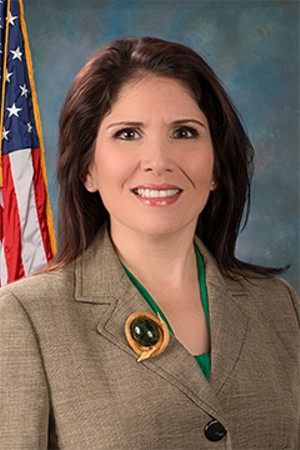While the group’s suggestions to consolidate local governments may get some traction in the Statehouse, its recommendations on unfunded mandates spell trouble for unions.
“Unfunded mandate” describes a requirement state government imposes on local governments without supplying funds to implement it. The task force stirred controversy by including union issues like prevailing wage in its report.
Illinois Lt. Gov. Evelyn Sanguinetti led the Local Government Consolidation and Unfunded Mandates Task Force, which issued its final report to Gov. Bruce Rauner Jan. 4. The 400-plus-page report calls for several changes to state law which would make it easier to consolidate local governments, along with several recommendations which would undercut union representation.
The task force was created through an executive order issued by Rauner in February 2015. It included a mix of Republican and Democratic legislators, plus several current and former officials from local governments around the state, such as past Springfield mayor Karen Hasara. The report was prompted in large part by Illinois’ numerous units of local government. The state ranks first in the nation for local government units, with 6,963 units like cities, counties, townships, park districts, schools and more.
Some of the report’s suggestions for consolidating local government are more realistic than others. The report calls for allowing voters to consolidate or dissolve local governmental bodies by referendum, a popular notion that could result in units like townships being absorbed into larger units like counties because the two types of governments often offer similar or duplicate services. However, the report also suggests that the state should implement a four-year moratorium on the creation of any new local governments, which would preclude things like new park districts or fire protection districts.
Bob Gray, a former commissioner on the Citizens’ Efficiency Commission for Sangamon County, says making consolidation easier is a step in the right direction, but he doubts doing so will save much money – especially at the state level. He’s also skeptical that any public officials in local governments will volunteer to give up power.
“It’s not out of any evil in their hearts,” he said. “It’s just that nothing in government makes it easy to change anything.”
In the section on unfunded mandates, the task force’s report calls for repealing or reforming prevailing wage requirements, making collective bargaining of union contracts optional instead of mandatory, eliminating “minimum manning” requirements from collective bargaining and other ideas that would curtail union power – the prevailing theme in Rauner’s “Turnaround Agenda” for Illinois.
“There doesn’t seem to be a policy push by this administration that doesn’t include some attempt to dismantle workers’ rights or wages,” said Ed Maher, spokesman for the International Union of Operating Engineers Local 150, a statewide union representing private- and public-sector workers.
Brad Schaive, business manager of Laborers Union Local 477 in Springfield, said the contracts he negotiates for workers in his union don’t even have minimum manning requirements. Schaive also takes issue with Rauner’s characterization that union salaries are too high, adding that the typical road worker only makes about $30,000 to $40,000 annually because the work is seasonal.
“Prevailing wage was established so that the individuals building our bridges and roads are paid a living wage,” he said. “I don’t think it’s in the best interest of the people of Illinois if the individuals building our public infrastructure are paid minimum wage.”
The report also includes a handful of proposed changes to state law regarding schools: allowing more flexibility on physical education waivers, letting schools contract out driver’s education classes and allowing schools to more easily privatize non-instructional services. Jim Reed, director of government relations for the Illinois Education Association, says the teachers’ union has concerns about each of those ideas, as well as the implications of the broader push to curtail union power.
“Any of these proposals need to be examined from the perspective of how they impact students, not just based on cost,” Reed said. “If we focus only on the bottom line, students get left out.”
Alden Loury, senior policy analyst with the watchdog Better Government Association, says the unfunded mandate proposals drew opposition from unions even before the report was issued. Loury recalls that someone – presumably union activists – repeatedly blared a pro-labor rally song over an open telephone line during one of the task force’s meetings as protest against some of the working group’s proposals.
Loury said he was dismayed that the conversation has revolved around controversial issues because many Illinois municipalities are in “dire financial straits.”
“Some of what’s being discussed may not be the best way to remedy it,” he said, “but there is certainly a cry for help.”
To save local governments money, the report suggests allowing them to post required public notices on their websites instead of in newspapers, a proposal hotly contested by the Illinois Press Association. Josh Sharp, vice president of government relations for IPA, notes that the Illinois General Assembly already passed law in 2010 requiring newspapers to post all public notices online to a statewide database, publicnoticeillinois.com.
“Newspaper publication has been and continues to be the best forum for disseminating news about official government actions,” Sharp said.
Read the task force report online at bit.ly/localgovmandates.


















